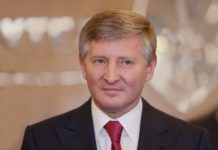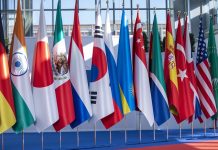The idea of naming the European Union’s new human rights sanctions after Alexey Navalny is aimed at directing the restrictions against Moscow, Russian Foreign Ministry Spokeswoman Maria Zakharova said at a briefing on Thursday, commenting on EU High Representative for Foreign Affairs and Security Policy Josep Borrell’s initiative on the matter, TASS reported.
“We view initiatives on naming new EU sanctions after Navalny as an overt attempt to direct them against Russia,” she pointed out.
According to Zakharova, certain political forces in the EU are boosting an information campaign aimed at making sure that Brussels won’t backpedal on its destructive policy towards Moscow.
“We expect that common sense will prevail in the European Union, so that our partners will abandon the practice of passing the buck randomly and will draw conclusions only from documented facts in the future,” the Russian diplomat stressed.
She noted that Moscow’s calls on Berlin to cooperate in sorting out the Navalny incident were being ignored under flimsy excuses.
Borrell earlier told the European Parliament that the EU was working on human rights sanctions that could be called the ‘Navalny sanctions regime’ “in the same way that the Americans call it the ‘Magnitsky Act’.”
Navalny incident
On August 20, a plane carrying Alexey Navalny made an emergency landing in the Russian city of Omsk after the blogger had suddenly felt unwell in mid-flight. Navalny was taken to the hospital in a coma and was hooked up to a ventilator. On August 22, he was flown to Germany for treatment at Berlin’s Charite hospital.
The German government said on September 2, citing the results of a toxicological analysis carried out by Bundeswehr experts, that Navalny had been poisoned with a Novichok nerve agent. Kremlin Spokesman Dmitry Peskov stated that Moscow was ready to fully cooperate with Berlin. Zakharova, in turn, noted that Germany had failed to provide any evidence of poisoning.












